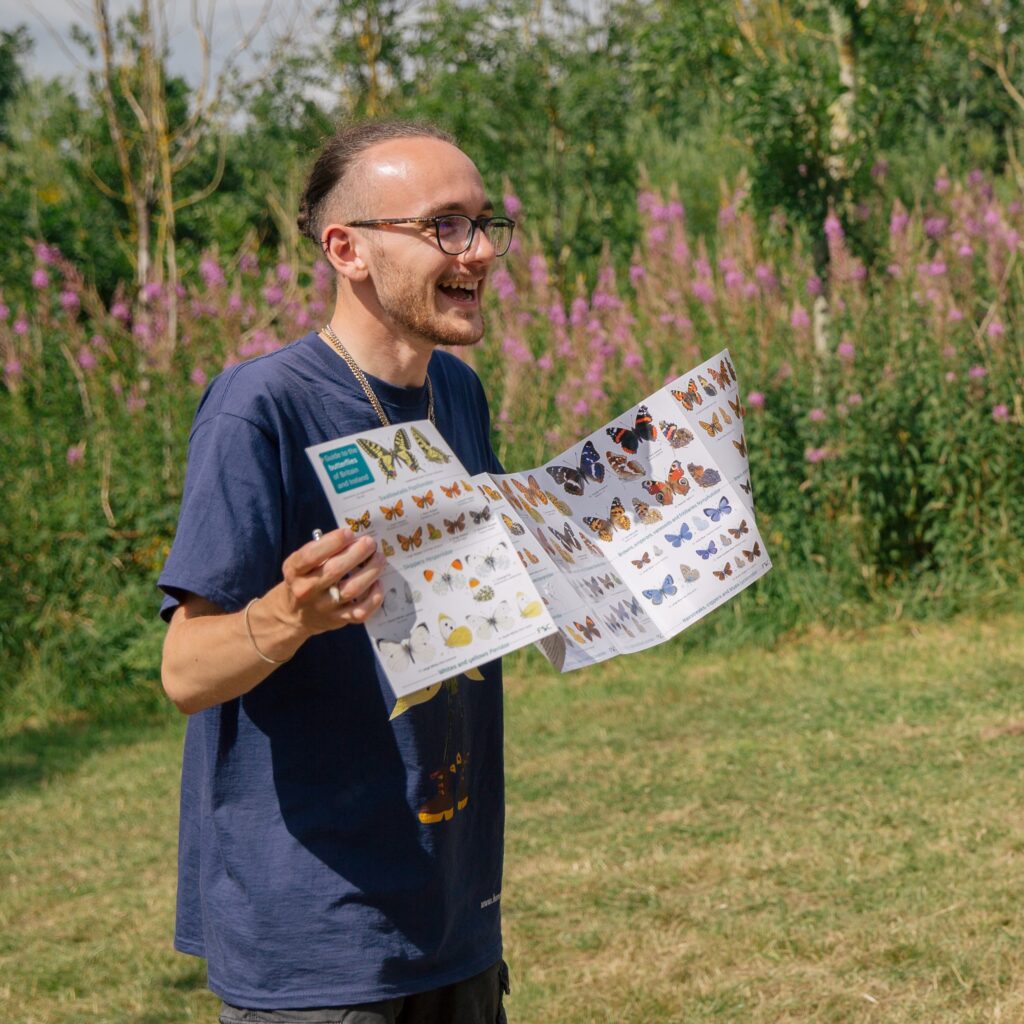Graham Smith

PhD: Measuring the impact of rewilding on pollinator biodiversity: what can machine learning tell us?
Location: University of Nottingham
Email: mbygws@nottingham.ac.uk
Twitter: https://twitter.com/GrahamSmithEnto
I completed a BSc in Biology at the University of Nottingham, graduating in 2019, my primary research focused on the population ecology of the European Glowworm (Lampyris noctiluca) in Sherwood Forest. Following this, I moved to Shropshire to pursue my growing appreciation of insects through an MSc in Entomology at Harper Adams University, graduating in 2021. Here my thesis examined mining bees, specifically the influence key nesting variables on the success of artificial bee banks in a Kentish orchard. Recently I have explored several entomology-focused roles outside of academia, working in schools as a Pollinator Outdoor Education officer with Learning through Landscapes, a Skipper Ranger for Butterfly Conservation and as a Seasonal and Freelance Ecologist specialising in invertebrates, particularly pollinators.
During my PhD I aim to leverage my specialist interest in pollinators. My research will explore how traditional insect identification methods compare to machine learning approaches for the monitoring of landscape-scale changes to pollinator biodiversity. In the face of ongoing biodiversity loss, assessing the effectiveness of novel conservation approaches, such as rewilding, is crucial.
Current monitoring approaches are difficult to standardise across space and time, are often expensive, or suffer from a scarcity of entomological expertise. Machine learning has shown promise to overcome these challenges, achieving expert-level accuracy at a lower cost with the capability to automate monitoring of large areas across extended time periods. Through my work, I seek to understand the capabilities and limitations of machine learning as a tool for addressing key ecological questions. Responsible use of machine learning could facilitate rapid conservation action, remove gaps in data and better inform policy to mitigate biodiversity loss.
My main study site will be Boothby Wildland, a new rewilding project, currently at the early stages of arable reversion. This site offers a wonderful opportunity to ask fundamental questions regarding early impacts of rewilding on pollinator communities. All management approaches have winners and losers; identifying how pollinator communities respond to successional change following intensive agriculture is vital, especially with widespread emergence of rewilding practices across the UK.
